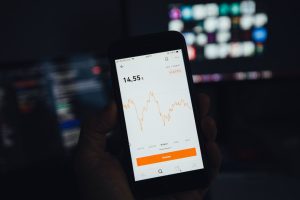Forex trading is a profitable and exciting venture, but it can also be risky if not done correctly. One of the essential aspects of forex trading is determining forex b booking. Forex b booking is a process that involves brokers setting aside some of their trades to manage their risk exposure. This article will provide an in-depth explanation of how to determine forex b booking.
What is Forex b Booking?
Forex b booking is a practice that forex brokers use to manage their risk exposure. It involves setting aside some of their trades and offsetting them with other trades in the market. The purpose of forex b booking is to reduce the broker’s exposure to market risk and protect their profits.
Forex brokers use two types of b booking: internal b booking and external b booking. Internal b booking involves offsetting the trades of their clients against each other, while external b booking involves offsetting their trades with other brokers or liquidity providers.
How to Determine Forex b Booking
Forex b booking can be determined by examining the broker’s trading platform and the types of accounts they offer. Here are some factors to consider when determining forex b booking:
1. Account Types
Forex brokers offer different account types, and each account type has different features and benefits. Forex brokers that use b booking often offer two types of accounts: A-book and B-book accounts.
A-book accounts are the standard accounts that most traders use. These accounts allow traders to access the interbank market and trade directly with liquidity providers. A-book accounts are suitable for traders who want to trade without any intervention from the broker.
B-book accounts, on the other hand, are used by brokers that use b booking. These accounts are designed to offset traders’ trades with other trades in the market, reducing the broker’s exposure to risk. B-book accounts are suitable for traders who are willing to accept some degree of intervention from the broker.
2. Trading Platform
The trading platform used by the broker can also provide clues about whether they use b booking or not. Brokers that use b booking often have proprietary trading platforms that are designed to manage risk exposure.
These platforms allow brokers to offset trades against each other and manage their risk exposure. If the broker’s trading platform has features that allow for internal b booking, there is a good chance that they use this practice.
3. Spreads and Commissions
The spreads and commissions charged by the broker can also provide clues about whether they use b booking or not. Brokers that use b booking often charge wider spreads and higher commissions than brokers that do not use this practice.
The reason for this is that b booking involves additional costs, such as the cost of offsetting trades with other trades in the market. Brokers that use b booking pass these costs onto their clients in the form of wider spreads and higher commissions.
4. Order Execution
The order execution process used by the broker can also provide clues about whether they use b booking or not. Brokers that use b booking often have longer execution times than brokers that do not use this practice.
The reason for this is that b booking involves the broker offsetting trades with other trades in the market. This process can take some time, which can result in longer execution times for clients.
Conclusion
Forex b booking is a practice that forex brokers use to manage their risk exposure. It involves setting aside some of their trades and offsetting them with other trades in the market. To determine whether a broker uses b booking, traders should examine the broker’s trading platform, account types, spreads and commissions, and order execution process. By understanding how b booking works, traders can make more informed decisions when choosing a forex broker.





